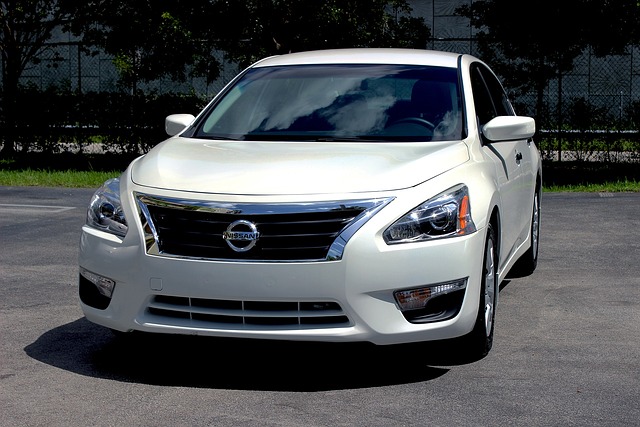
Nissan Motor Corp., Japan's third-largest automaker, is in the midst of a dramatic restructuring plan to revitalize its global operations. Facing a rapidly evolving automotive landscape dominated by electric and hybrid vehicles, the company is taking drastic measures to regain lost ground.
The restructuring involves a significant workforce reduction of 9,000 jobs, a 20% cut in production capacity, and a 50% pay cut for CEO Makoto Uchida. These cost-cutting measures reflect the dire financial situation of Nissan, with net income plummeting 94% in the first half of the fiscal year.
The company's financial struggles are attributed to several factors:
The rapid rise of Chinese automakers, particularly BYD, which are aggressively capturing market share in the electric vehicle (EV) segment.
Nissan's overly ambitious sales targets, which failed to materialize.
The shifting consumer preferences towards EVs and hybrids, putting pressure on traditional automakers like Nissan.
Nissan's Strategy for a Comeback
Nissan is aiming for a comeback by focusing on its strengths and adapting to market trends. Key elements of their strategy include:
Investing in EVs in China: Recognizing the dominance of Chinese EV makers, Nissan plans to ramp up its EV lineup in the Chinese market, targeting the growing demand.
Expanding Hybrid Offerings in the U.S.: Nissan is bolstering its hybrid vehicle offerings in the U.S., where hybrid vehicles are gaining popularity, to compete with rivals like Toyota.
Leveraging Partnerships: Nissan is entering strategic partnerships, like the recent tie-up with Honda, to streamline production and reduce costs. These collaborations aim to optimize resources and enhance efficiency.
Analyzing the Restructuring Plan
Nissan's restructuring plan is ambitious, but it faces significant challenges:
Competition: The global automotive market is intensely competitive, with established players and emerging EV startups vying for market share. Nissan will need to differentiate itself and offer compelling products to attract customers.
Consumer Demand: The shift towards EVs is accelerating, putting pressure on traditional automakers to transition their portfolios rapidly. Nissan must ensure that its EV lineup is competitive in terms of performance, range, and price.
Economic Uncertainty: The global economy is facing challenges, which could impact consumer spending on vehicles. Nissan needs to navigate these uncertainties effectively and maintain its financial stability.
Comparative Analysis: Nissan vs. Competitors
The following table provides a comparative analysis of Nissan's key performance indicators against some of its major competitors:
Metric | Nissan | Toyota | Honda | BYD |
Global Market Share (%) | 2.7 | 10.5 | 3.8 | 1.2 |
EV Sales (2022) | 200,000 | 1,000,000 | 300,000 | 1,800,000 |
Operating Income (2022) | Down 70% | Stable | Slight Increase | Strong Growth |
As seen in the table, Nissan is trailing its major competitors in terms of global market share, EV sales, and operating income. While Toyota and Honda are actively transitioning their portfolios towards EVs, BYD is a clear leader in the EV market with a significant market share and strong growth in operating income.
A Pivotal Moment for Nissan
Nissan's restructuring plan represents a pivotal moment for the company. It is a bold attempt to address the challenges it faces and regain its position as a global automotive leader. The success of this plan will depend on Nissan's ability to execute its strategy effectively, adapt to the rapidly evolving automotive landscape, and capitalize on emerging opportunities in the EV and hybrid vehicle markets.
"These turnaround measures do not imply that the company is shrinking. Nissan will restructure its business to become leaner and more resilient, while also reorganizing management to respond quickly and flexibly to changes in the business environment. We aim to enhance the competitiveness of our products, which are fundamental to our success, and set Nissan back on a path of growth. As a cohesive team, we are dedicated to working together to ensure the successful implementation of our plans." - Makoto Uchida, CEO of Nissan Motor Corp.
The path ahead for Nissan will be challenging, but the company is demonstrating its commitment to adapting and competing in the evolving automotive landscape. With a clear focus on EVs and hybrids, and a willingness to embrace strategic partnerships, Nissan is signaling its intent to regain its footing in the global automotive market. Only time will tell if its restructuring plan will be successful in propelling the company towards a brighter future.
Space for advertisement
Nov 13, 2024
DATE :
BUSINESS
CATEGORY:
Nissan's Restructuring: A Global Automaker's Fight for Survival
Nissan faces significant challenges in the rapidly evolving automotive market. The company is restructuring, cutting jobs, and reducing production capacity to regain competitiveness.

